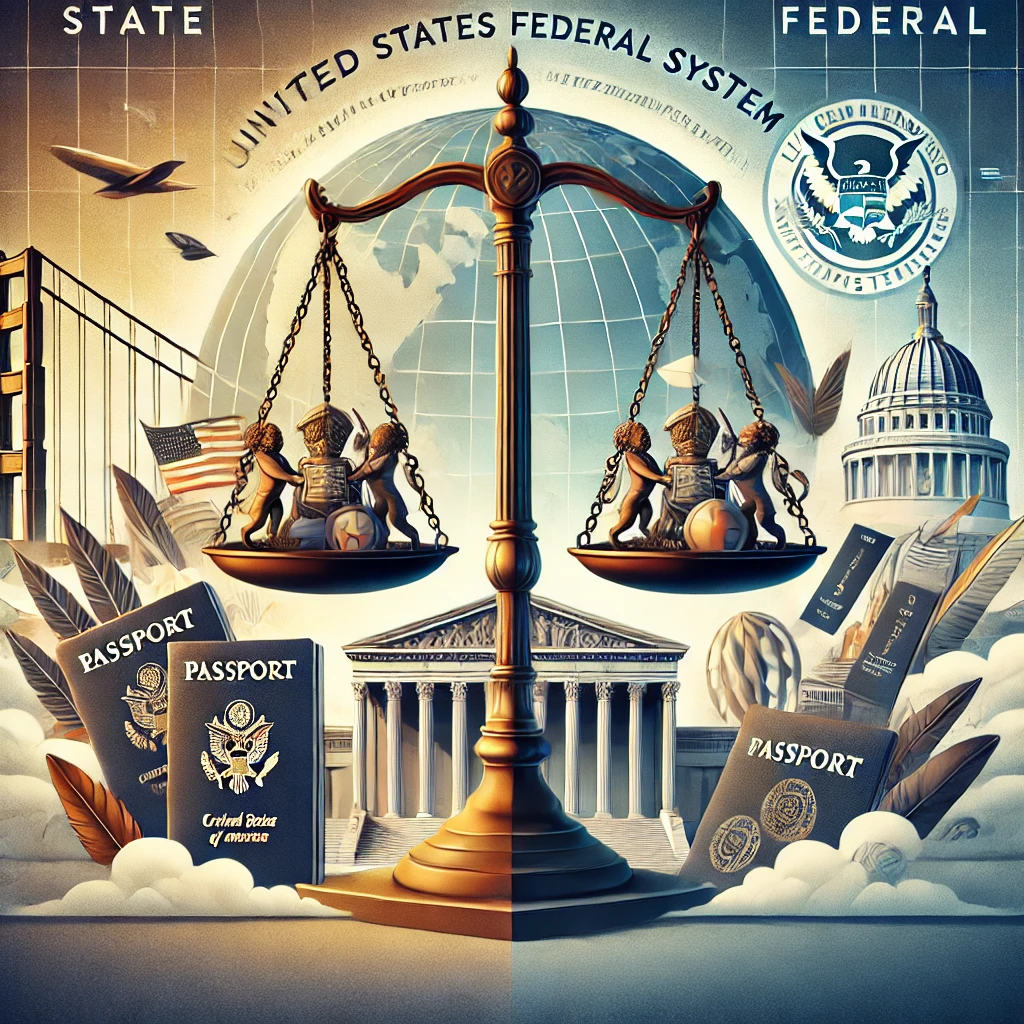
State vs. Federal Authority: The Limits of Immigration Laws and Constitutional Balance
Case: Chy Lung v. Freeman, 92 U.S. 275 (1875).
The Substance of the Case
This case dealt with the conflict between state and federal powers regarding immigration laws. A California law allowed the state’s Commissioner of Immigration to detain foreign passengers arriving by ship if they were deemed undesirable, such as “lewd or debauched women,” unless the ship’s master paid a bond or an arbitrary fee. This law gave the Commissioner excessive discretion to impose fees and restrict immigration, which could harm foreign relations.
The U.S. Supreme Court had to decide whether this California law was constitutional or if it improperly infringed upon federal authority to regulate immigration and commerce.
Facts of the Case
- A passenger from China, labeled as a “lewd woman” by the California Commissioner of Immigration, was detained because the ship’s master refused to pay a $500 bond.
- The Commissioner’s authority extended to deciding who could enter based on vague and arbitrary categories.
- The passenger challenged her detention, arguing the law was unconstitutional.
Court’s Analysis
- Federal Authority Over Immigration and Commerce: The Constitution grants Congress—not individual states—the power to regulate immigration and commerce with foreign nations. This ensures uniformity and prevents conflicts with other countries.
- Excessive Discretion and Abuse of Power: The California law gave the Commissioner unchecked power to extort money or deny entry to passengers without fair procedures, which could harm international relations.
- No Justifiable Necessity: While states can protect themselves from criminal or impoverished individuals, this law went far beyond necessity and targeted arbitrary categories of people for financial gain.
Outcome of the Case
The Supreme Court ruled that California’s law violated the Constitution because:
- It encroached on the federal government’s exclusive power to regulate immigration and commerce.
- It allowed arbitrary and discriminatory practices, risking conflict with foreign nations.
The Court reversed the California Supreme Court’s decision, ordering the release of the detained passenger and striking down the state law as unconstitutional.
Summary for Non-Legal Audiences
This case showed that states cannot create their own immigration rules when they interfere with the federal government’s powers. California’s law unfairly targeted immigrants, allowed a state official to extort money from shipmasters, and risked creating international disputes. The Supreme Court stopped this law, emphasizing that only the federal government can regulate immigration and trade with other nations.
Let’s Get Started
Your legal challenges deserve personalized attention and innovative solutions. Contact Oware Justice Advocates PC today for a consultation and take the first step toward resolution and peace of mind.
355 South Teller Street, Suite 204,
Lakewood, CO 80226
(Visits to the office are strictly by appointment only)
303-514-6589

